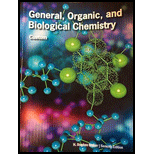
General, Organic, and Biological Chemistry Seventh Edition
7th Edition
ISBN: 9781305767867
Author: H. Stephan Stoker
Publisher: Cengage Learning
expand_more
expand_more
format_list_bulleted
Textbook Question
Chapter 14, Problem 14.127EP
Classify each of the following molecular structures as that of a cyclic ether, a noncyclic ether, or a nonether.
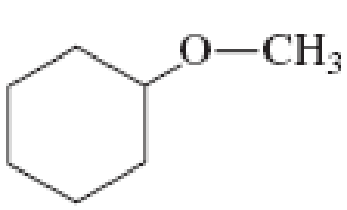
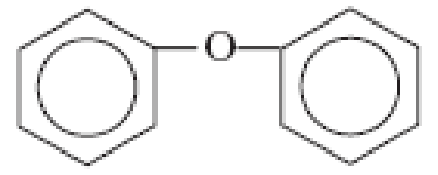
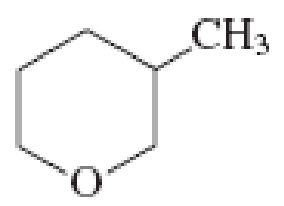
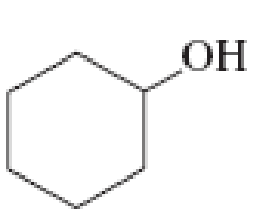
Expert Solution & Answer
Want to see the full answer?
Check out a sample textbook solution
Students have asked these similar questions
Write the systematic (IUPAC) name for each of the following organic molecules:
F
structure
Br
LL
Br Br
الحمد
name
☐
☐
Draw an appropriate reactant on the left-hand side of this organic reaction.
Also, if any additional major products will be formed, add them to the right-hand side of the reaction.
+
+
Х
ง
C
1. MCPBA
Click and drag to start
drawing a structure.
2. NaOH, H₂O
Explanation
Check
OI...
OH
ol
OH
18
Ar
© 2025 McGraw Hill LLC. All Rights Reserved. Terms of Use | Privacy Center | Accessibility
Calculate the atomic packing factor of quartz, knowing that the number of Si atoms per cm3 is 2.66·1022 and that the atomic radii of silicon and oxygen are, respectively, 0.038 and 0.117 nm.
Chapter 14 Solutions
General, Organic, and Biological Chemistry Seventh Edition
Ch. 14.1 - Prob. 1QQCh. 14.1 - Prob. 2QQCh. 14.2 - Prob. 1QQCh. 14.2 - Prob. 2QQCh. 14.2 - Prob. 3QQCh. 14.3 - Prob. 1QQCh. 14.3 - Prob. 2QQCh. 14.3 - Prob. 3QQCh. 14.3 - Prob. 4QQCh. 14.4 - Prob. 1QQ
Ch. 14.4 - Prob. 2QQCh. 14.4 - Prob. 3QQCh. 14.5 - Prob. 1QQCh. 14.5 - Prob. 2QQCh. 14.5 - Prob. 3QQCh. 14.5 - Prob. 4QQCh. 14.6 - Prob. 1QQCh. 14.6 - Prob. 2QQCh. 14.6 - Prob. 3QQCh. 14.7 - Prob. 1QQCh. 14.7 - Prob. 2QQCh. 14.8 - Prob. 1QQCh. 14.8 - Prob. 2QQCh. 14.9 - Prob. 1QQCh. 14.9 - Prob. 2QQCh. 14.9 - Prob. 3QQCh. 14.9 - Prob. 4QQCh. 14.9 - Prob. 5QQCh. 14.9 - Prob. 6QQCh. 14.10 - Prob. 1QQCh. 14.10 - Prob. 2QQCh. 14.11 - Prob. 1QQCh. 14.11 - Prob. 2QQCh. 14.11 - Prob. 3QQCh. 14.12 - Prob. 1QQCh. 14.12 - Prob. 2QQCh. 14.13 - Prob. 1QQCh. 14.13 - Prob. 2QQCh. 14.13 - Prob. 3QQCh. 14.14 - Prob. 1QQCh. 14.14 - Prob. 2QQCh. 14.14 - Prob. 3QQCh. 14.15 - Prob. 1QQCh. 14.15 - Prob. 2QQCh. 14.15 - Prob. 3QQCh. 14.15 - Prob. 4QQCh. 14.16 - Prob. 1QQCh. 14.16 - Prob. 2QQCh. 14.17 - Prob. 1QQCh. 14.17 - Prob. 2QQCh. 14.17 - Prob. 3QQCh. 14.18 - Prob. 1QQCh. 14.18 - Prob. 2QQCh. 14.18 - Prob. 3QQCh. 14.19 - Prob. 1QQCh. 14.19 - Prob. 2QQCh. 14.20 - Prob. 1QQCh. 14.20 - Prob. 2QQCh. 14.20 - Prob. 3QQCh. 14.20 - Prob. 4QQCh. 14.20 - Prob. 5QQCh. 14.21 - Prob. 1QQCh. 14.21 - Prob. 2QQCh. 14.21 - Prob. 3QQCh. 14.21 - Prob. 4QQCh. 14.21 - Prob. 5QQCh. 14 - Prob. 14.1EPCh. 14 - Prob. 14.2EPCh. 14 - Prob. 14.3EPCh. 14 - Prob. 14.4EPCh. 14 - Prob. 14.5EPCh. 14 - Prob. 14.6EPCh. 14 - Prob. 14.7EPCh. 14 - Prob. 14.8EPCh. 14 - Prob. 14.9EPCh. 14 - Prob. 14.10EPCh. 14 - Write a condensed structural formula for each of...Ch. 14 - Write a condensed structural formula for each of...Ch. 14 - Prob. 14.13EPCh. 14 - Prob. 14.14EPCh. 14 - Prob. 14.15EPCh. 14 - Prob. 14.16EPCh. 14 - Prob. 14.17EPCh. 14 - Prob. 14.18EPCh. 14 - Each of the following alcohols is named...Ch. 14 - Prob. 14.20EPCh. 14 - Prob. 14.21EPCh. 14 - Prob. 14.22EPCh. 14 - Prob. 14.23EPCh. 14 - Prob. 14.24EPCh. 14 - Prob. 14.25EPCh. 14 - Prob. 14.26EPCh. 14 - Prob. 14.27EPCh. 14 - Prob. 14.28EPCh. 14 - Prob. 14.29EPCh. 14 - Prob. 14.30EPCh. 14 - Prob. 14.31EPCh. 14 - Prob. 14.32EPCh. 14 - Prob. 14.33EPCh. 14 - Prob. 14.34EPCh. 14 - Explain why the boiling points of alcohols are...Ch. 14 - Explain why the water solubilities of alcohols are...Ch. 14 - Prob. 14.37EPCh. 14 - Prob. 14.38EPCh. 14 - Prob. 14.39EPCh. 14 - Which member of each of the following pairs of...Ch. 14 - Determine the maximum number of hydrogen bonds...Ch. 14 - Determine the maximum number of hydrogen bonds...Ch. 14 - Prob. 14.43EPCh. 14 - Prob. 14.44EPCh. 14 - Prob. 14.45EPCh. 14 - Prob. 14.46EPCh. 14 - Classify each of the following alcohols as a...Ch. 14 - Classify each of the following alcohols as a...Ch. 14 - Classify each of the following alcohols as a...Ch. 14 - Classify each of the following alcohols as a...Ch. 14 - Prob. 14.51EPCh. 14 - Prob. 14.52EPCh. 14 - Prob. 14.53EPCh. 14 - Prob. 14.54EPCh. 14 - Prob. 14.55EPCh. 14 - Prob. 14.56EPCh. 14 - Prob. 14.57EPCh. 14 - Prob. 14.58EPCh. 14 - Prob. 14.59EPCh. 14 - Prob. 14.60EPCh. 14 - The alcohol 2,2-dimethyl-1-butanol cannot be...Ch. 14 - Prob. 14.62EPCh. 14 - Prob. 14.63EPCh. 14 - Prob. 14.64EPCh. 14 - Draw the structure of the aldehyde or ketone...Ch. 14 - Draw the structure of the aldehyde or ketone...Ch. 14 - Prob. 14.67EPCh. 14 - Prob. 14.68EPCh. 14 - Prob. 14.69EPCh. 14 - Prob. 14.70EPCh. 14 - Three isomeric pentanols with unbranched carbon...Ch. 14 - Prob. 14.72EPCh. 14 - Prob. 14.73EPCh. 14 - Prob. 14.74EPCh. 14 - Prob. 14.75EPCh. 14 - Prob. 14.76EPCh. 14 - Prob. 14.77EPCh. 14 - Prob. 14.78EPCh. 14 - Prob. 14.79EPCh. 14 - Prob. 14.80EPCh. 14 - Prob. 14.81EPCh. 14 - Prob. 14.82EPCh. 14 - Prob. 14.83EPCh. 14 - Prob. 14.84EPCh. 14 - Prob. 14.85EPCh. 14 - Prob. 14.86EPCh. 14 - Prob. 14.87EPCh. 14 - Prob. 14.88EPCh. 14 - Prob. 14.89EPCh. 14 - Prob. 14.90EPCh. 14 - Prob. 14.91EPCh. 14 - Classify each of the following compounds as an...Ch. 14 - Draw or write the following for the simplest ether...Ch. 14 - Draw or write the following for the simplest ether...Ch. 14 - Prob. 14.95EPCh. 14 - Prob. 14.96EPCh. 14 - Prob. 14.97EPCh. 14 - Prob. 14.98EPCh. 14 - Prob. 14.99EPCh. 14 - Prob. 14.100EPCh. 14 - Prob. 14.101EPCh. 14 - Prob. 14.102EPCh. 14 - Prob. 14.103EPCh. 14 - Prob. 14.104EPCh. 14 - Prob. 14.105EPCh. 14 - Prob. 14.106EPCh. 14 - Prob. 14.107EPCh. 14 - Prob. 14.108EPCh. 14 - Prob. 14.109EPCh. 14 - Prob. 14.110EPCh. 14 - Prob. 14.111EPCh. 14 - Prob. 14.112EPCh. 14 - Prob. 14.113EPCh. 14 - Give common names for all ethers that are...Ch. 14 - How many isomeric ethers exist when the R groups...Ch. 14 - Prob. 14.116EPCh. 14 - Prob. 14.117EPCh. 14 - Draw condensed structural formulas for the...Ch. 14 - Prob. 14.119EPCh. 14 - Prob. 14.120EPCh. 14 - Prob. 14.121EPCh. 14 - Prob. 14.122EPCh. 14 - Prob. 14.123EPCh. 14 - How do the chemical reactivities of ethers compare...Ch. 14 - Explain why ether molecules cannot hydrogen-bond...Ch. 14 - How many hydrogen bonds can form between a single...Ch. 14 - Classify each of the following molecular...Ch. 14 - Classify each of the following molecular...Ch. 14 - Prob. 14.129EPCh. 14 - Prob. 14.130EPCh. 14 - Prob. 14.131EPCh. 14 - Draw a condensed structural formula for each of...Ch. 14 - Prob. 14.133EPCh. 14 - Prob. 14.134EPCh. 14 - Prob. 14.135EPCh. 14 - Prob. 14.136EPCh. 14 - Prob. 14.137EPCh. 14 - For each of the following pairs of compounds,...Ch. 14 - Assign an IUPAC name to each of the following...Ch. 14 - Prob. 14.140EPCh. 14 - Prob. 14.141EPCh. 14 - Prob. 14.142EPCh. 14 - Prob. 14.143EPCh. 14 - Prob. 14.144EPCh. 14 - Prob. 14.145EPCh. 14 - Prob. 14.146EP
Knowledge Booster
Learn more about
Need a deep-dive on the concept behind this application? Look no further. Learn more about this topic, chemistry and related others by exploring similar questions and additional content below.Similar questions
- 3. a. Use the periodic table to add up the molecular weight of thionyl chloride (SOCl2) and show your work. b. The actual value obtained for the molecular ion on a high resolution mass spectrometer is 117.9041. Explain the discrepancy. c. Show the calculations that correctly result in the exact mass of 117.9041 for SOC₁₂. Use Table 11.2 or Appendix E in your calculations.arrow_forward6. Draw the molecular orbital diagram shown to determine which of the following is paramagnetic. B₂2+ B22+, B2, C22, B22- and N22+ Molecular Orbital Diagram B2 C22- B22- N22+ Which molecule is paramagnetic?arrow_forwardDon't used hand raitingarrow_forward
- EXERCISES: Complete the following exercises. You must show all work to receive full credit. 1. How many molecular orbitals can be built from the valence shell orbitals in O2? 2. Give the ground state electron configuration (e.g., 02s² 0*2s² П 2p²) for these molecules and deduce its bond order. Ground State Configuration Bond Order H2+ 02 N2arrow_forward7. Draw the Lewis structures and molecular orbital diagrams for CO and NO. What are their bond orders? Are the molecular orbital diagrams similar to their Lewis structures? Explain. CO Lewis Structure NO Lewis Structure CO Bond Order NO Bond Order CO Molecular Orbital Diagram NO Molecular Orbital Diagramarrow_forwardDon't used hand raiting and don't used Ai solutionarrow_forward
- Draw the condensed structure of 4-ethyl-1,2,4-trifluoro-2-methyloctane.arrow_forward5. The existence of compounds of the noble gases was once a great surprise and stimulated a great deal of theoretical work. Label the molecular orbital diagram for XeF (include atom chemical symbol, atomic orbitals, and molecular orbitals) and deduce its ground state electron configuration. Is XeF likely to have a shorter bond length than XeF+? XeF XeF+ Bond Orderarrow_forwardDon't used hand raitingarrow_forward
- 4. The superoxide ion, Oz, plays an important role in the ageing processes that take place in organisms. Judge whether O2 is likely to have larger or smaller dissociation energy than O2. Molecular Orbital Diagram 8 02 02 Does O2 have larger or smaller dissociation energy?: Bond Orderarrow_forwardWill a weak base with a pKa of 8.4 be best absorbed in the stomach or the intestine? Explain your reasoning behind your answer. Use a chemical equilibrium equation in your answer.arrow_forwardYou have started a patient on a new drug. Each dose introduces 40 pg/mL of drug after redistribution and prior to elimination. This drug is administered at 24 h intervals and has a half life of 24 h. What will the concentration of drug be after each of the first six doses? Show your work a. What is the concentration after the first dose? in pg/mL b. What is the concentration after the second dose? in pg/mL c. What is the concentration after the third dose? in pg/mLarrow_forward
arrow_back_ios
SEE MORE QUESTIONS
arrow_forward_ios
Recommended textbooks for you
 Organic And Biological ChemistryChemistryISBN:9781305081079Author:STOKER, H. Stephen (howard Stephen)Publisher:Cengage Learning,
Organic And Biological ChemistryChemistryISBN:9781305081079Author:STOKER, H. Stephen (howard Stephen)Publisher:Cengage Learning, General, Organic, and Biological ChemistryChemistryISBN:9781285853918Author:H. Stephen StokerPublisher:Cengage Learning
General, Organic, and Biological ChemistryChemistryISBN:9781285853918Author:H. Stephen StokerPublisher:Cengage Learning Chemistry: Principles and PracticeChemistryISBN:9780534420123Author:Daniel L. Reger, Scott R. Goode, David W. Ball, Edward MercerPublisher:Cengage Learning
Chemistry: Principles and PracticeChemistryISBN:9780534420123Author:Daniel L. Reger, Scott R. Goode, David W. Ball, Edward MercerPublisher:Cengage Learning Introductory Chemistry: An Active Learning Approa...ChemistryISBN:9781305079250Author:Mark S. Cracolice, Ed PetersPublisher:Cengage Learning
Introductory Chemistry: An Active Learning Approa...ChemistryISBN:9781305079250Author:Mark S. Cracolice, Ed PetersPublisher:Cengage Learning Chemistry for Today: General, Organic, and Bioche...ChemistryISBN:9781305960060Author:Spencer L. Seager, Michael R. Slabaugh, Maren S. HansenPublisher:Cengage Learning
Chemistry for Today: General, Organic, and Bioche...ChemistryISBN:9781305960060Author:Spencer L. Seager, Michael R. Slabaugh, Maren S. HansenPublisher:Cengage Learning

Organic And Biological Chemistry
Chemistry
ISBN:9781305081079
Author:STOKER, H. Stephen (howard Stephen)
Publisher:Cengage Learning,

General, Organic, and Biological Chemistry
Chemistry
ISBN:9781285853918
Author:H. Stephen Stoker
Publisher:Cengage Learning

Chemistry: Principles and Practice
Chemistry
ISBN:9780534420123
Author:Daniel L. Reger, Scott R. Goode, David W. Ball, Edward Mercer
Publisher:Cengage Learning

Introductory Chemistry: An Active Learning Approa...
Chemistry
ISBN:9781305079250
Author:Mark S. Cracolice, Ed Peters
Publisher:Cengage Learning

Chemistry for Today: General, Organic, and Bioche...
Chemistry
ISBN:9781305960060
Author:Spencer L. Seager, Michael R. Slabaugh, Maren S. Hansen
Publisher:Cengage Learning

07 Physical Properties of Organic Compounds; Author: Mindset;https://www.youtube.com/watch?v=UjlSgwq4w6U;License: Standard YouTube License, CC-BY